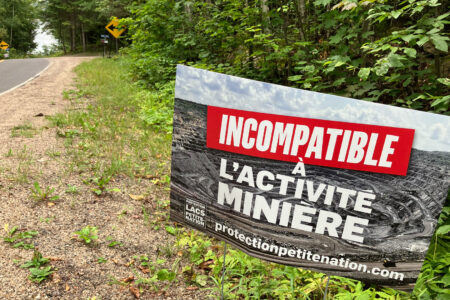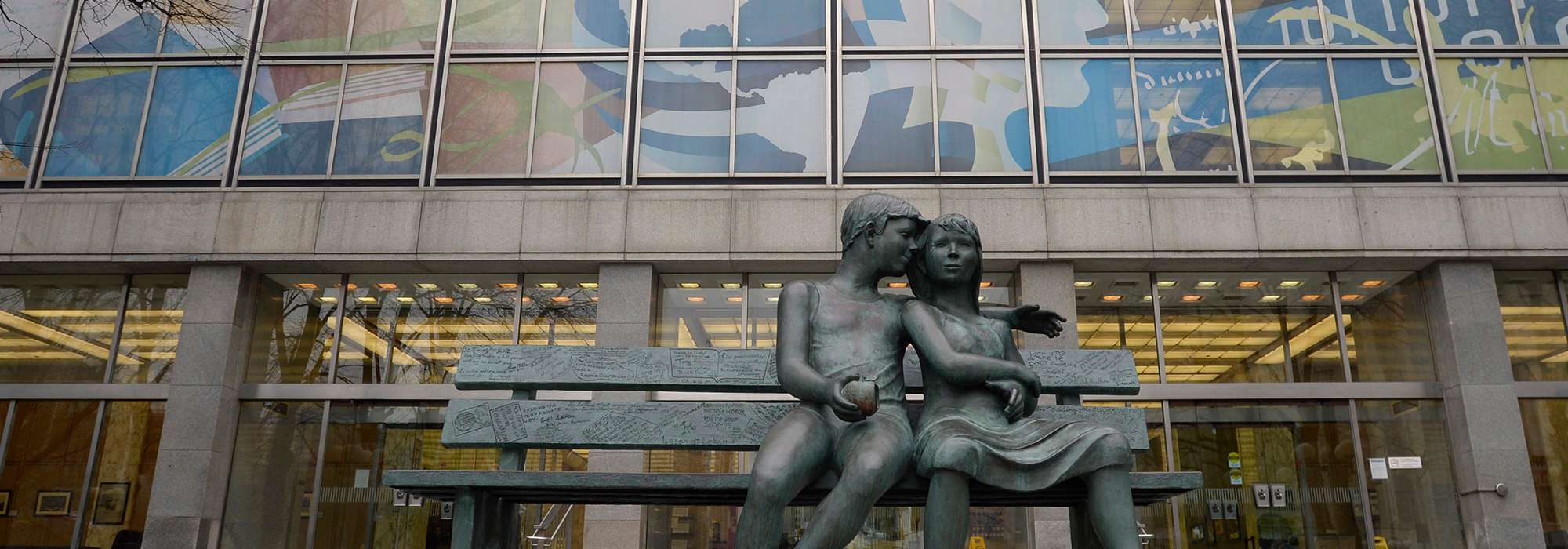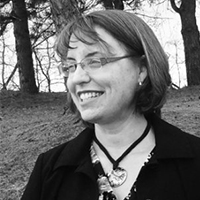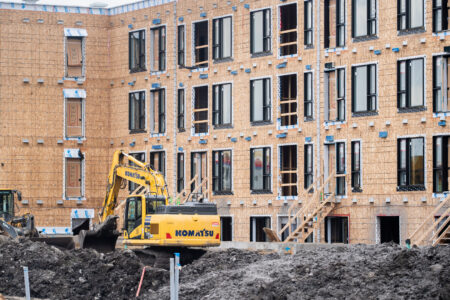
There has been a lot of noise recently about information distortion and its effects on democracy. So what better time to raise the importance of historical literacy and public archives? In gathering and promoting primary source material, archives play an essential role in modelling literacy skills and critical thinking. In analyzing this material and producing modest, reasonable conclusions, researchers aim to understand complex issues and to engage the public in the discussion. These skills are crucial tools in a democracy.
For too long archives have been hidden and archivists overlooked. All sorts of unflattering stories have circulated about archives, as if to keep the general public out. Witness the way popular culture has painted the picture: dust, disorder and darkness.
Historical thinking
Archives are considerably more nuanced than most people realize. The researchers who use public archives, as well as the staff, have a wide range of backgrounds and interests. Diversity is valued for the fresh ideas it fosters. Pluralism brings new perspectives and new questions to the sources. Working with archives is an exercise in historical thinking where questions about sources, context and cause are central. (Consider the work of the Historical Thinking Project, an educational initiative organized around the questions historians pose of primary sources, aimed at promoting media and information literacy.) Solid archival research requires sources to be validated, corroborated and referenced, so that peers can follow the line of reasoning and further the arguments.
As critical thinkers engaged in creating interrelated information pathways, archivists are allergic to binary thinking. They worry about gaps in collections and how to mitigate bias, both historical and contemporary. Behind the scenes, archivists query one another on acquisitions, evaluations and descriptions of archival collections to ensure that the documentary heritage preserved today will enable future generations to understand their own past.
What motivates archivists? Primarily, it’s the conviction that people have the right to understand the society they live in. In a democracy, rights and responsibilities are in balance. Archives uphold the democratic principles of accountability and transparency. Archives remind us that our decisions have tangible impacts. We all make better decisions when we are well informed. Library and Archives Canada (LAC), for instance, is legally mandated to be the “continuing memory of the Government of Canada and its institutions,” meaning that future researchers will have access to governmental archives created today. This ensures the long-term accountability of government, including through litigation. LAC is also legally mandated to contribute to the “cultural, social and economic advancement of Canada as a free and democratic society” through the acquisition and diffusion of knowledge.
For archivists, change is constant and embraced, but it is the longue durée that is measured here. For instance, access to archival records may be restricted in the short term to protect privacy rights, but schedules are in place to ensure the information will eventually become available to researchers. Today’s historians and educators have the benefit of previously unavailable information from the archives, which means that children today are learning new, more nuanced histories.
Truth matters
Why does it matter that deeper understandings are brought to the discipline of history and the archival practice? Because we learn from the past. As archival records become available, we are better able to analyze the ways our lives have changed. Sometimes this means celebrating achievements, and sometimes it means acknowledging errors. New evidence can — we hope — help us to make good future decisions and to avoid perpetuating injustice. Consider, for instance, the way archival records have informed current discussions of Indigenous history and reconciliation initiatives.
Public archives promote the view that truth matters, even when it is not yet fully established. This is not to suggest that all information resources are accurate. Public debate based on careful factual analysis of all the available information helps us approach a provisionally truthful account. With time, the account is refined further. Archival research is about perpetually seeking clearer understandings of the past.
To face new challenges, archives are changing: experimenting with new techniques, refreshing their outreach strategies and building partnerships with other memory institutions. The buildings in which archives are housed matter less than the work that takes place within. But if Andrew Carnegie, who funded thousands of public libraries internationally, were alive today, would he not rally around the idea of architecture so eye-catching in a centrally located and welcoming building that citizens enter as tourists and stay as seekers of knowledge — and would this not perhaps inspire other wealthy patrons to follow his example?
Public archives and libraries are community and design hubs that speak of transparency and openness, where learning is shared, across time. As Sir Arthur Doughty, Dominion Archivist and Keeper of the Public Records, wrote in The Canadian Archives and Its Activities (1924):
Of all national assets, archives are the most precious, they are the gifts of one generation to another, and the extent of our care of them marks the extent of our civilisation…As a rule, the papers of a given generation are seldom required after their reception and primary use; but when all personal touch with that period has ceased, then these records assume a startling importance, for they replace hands that have vanished and lips that are sealed.
Not Orwell’s archive
It would be pretentious and even dangerous to unfurl a banner on the facade of public archive buildings proclaiming that the “Truth” lives within. Remember Winston Smith, the protagonist of George Orwell’s 1984, an archivist working at the Ministry of Truth? In Orwell’s dystopian version of a public archives, Smith was actually altering archival resources, making the past more obscure. He and his colleagues endured a daily sound bite of hate broadcasting, and then turned the vitriol on each other while reading only those books from which they had nothing new to learn. Orwell offers readers a chance to reflect on what would happen if authoritarian noise pollution drowned out democratic voices. The disinformation campaigns he describes contribute to virulent and profound crises of public confidence. Apathy, poor decision-making and, in the worst cases, hostile and violent acts result. Such toxic memes are the weapons of dictators and are harmful to democracy.
But we have a choice: we can reject this dystopian vision, and instead advocate for ethical information management. In supporting public archives, we project a democratic vision, where the public is welcome, where new ideas circulate and where information is secured, examined, analyzed and diffused for educational purposes.
Archives as public institutions
Public archives offer their spaces for exhibitions, book launches, film screenings and other events. Archivists engage in community outreach and support rigorous research and excellence in teaching. They model engaged citizenship and spread the message that the exercise of democracy is a public good.
There is power in a public institution founded on the principles of enlightenment, entrusted with a community’s treasures and pledged to constantly improve its collections and services. It is not by chance that archivists working for public archives organize their values around concepts of democracy, respect for people, integrity, stewardship and excellence.
It is time to turn up the volume on public archives, more relevant now than ever.
Photo: A statue sits at the entrance of a Library and Archives Canada building in Ottawa on Tuesday Nov. 25, 2014. The Canadian Press, by Adrian Wyld
Do you have something to say about the article you just read? Be part of the Policy Options discussion, and send in your own submission. Here is a link on how to do it. | Souhaitez-vous réagir à cet article ? Joignez-vous aux débats d’Options politiques et soumettez-nous votre texte en suivant ces directives.








